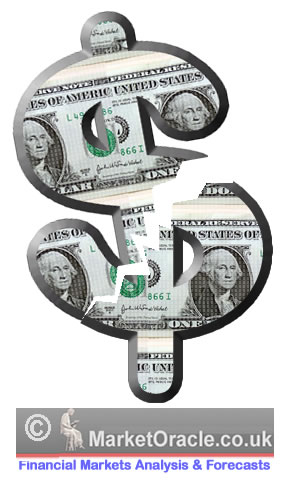What Larry Summers thinks.
uly 1, 2009, 1:19 am
NEW YORK (AFP) - When it comes to the economic crisis, the worst is yet to come, top White House economic advisor Lawrence Summers said Saturday.
"I don't think the worst is over," Summers told the Financial Times. "It's very likely that more jobs will be lost. It would not be surprising if GDP has not yet reached its low."
Despite his worried outlook, Summers, director of President Barack Obama's National Economic Council, acknowledged a change in the economic environment.
"What does appear to be true is that the sense of panic in the markets and freefall in the economy has subsided and one does not have the sense of a situation as out of control as a few months ago," he said.
The US Commerce Department is scheduled to publish on July 31 its first gross domestic product (GDP) estimates for the second quarter, and economists are expecting a continuation of the decline that began last winter.
Indicators published last month suggested that the US economy had overcome the worst of the crisis, with a 5.5 percent GDP annual rate in the first quarter, after the previous quarter's 6.3 percent decline.
A survey of economists conducted by The Wall Street Journal this week found that 54 percent said the US recession that began in December 2007 will be over by summer's end.
But the poll also found that economists expect the US unemployment rate, currently at 9.5 percent, will rise to 10 percent by the end of the year and remain at that level until around June 2010.
The comments by Summers echoed the cautious approach to economic projections taken by most Obama administration officials of late.
Obama himself emphasized at the end of this week's G8 summit in Italy that "recovery is still a way off."
"It would be premature to begin winding down our stimulus plans and... we must sustain our support for those plans to lay the foundation for a strong and lasting recovery," he told a post-summit press conference.
uly 1, 2009, 1:19 am
NEW YORK (AFP) - When it comes to the economic crisis, the worst is yet to come, top White House economic advisor Lawrence Summers said Saturday.
"I don't think the worst is over," Summers told the Financial Times. "It's very likely that more jobs will be lost. It would not be surprising if GDP has not yet reached its low."
Despite his worried outlook, Summers, director of President Barack Obama's National Economic Council, acknowledged a change in the economic environment.
"What does appear to be true is that the sense of panic in the markets and freefall in the economy has subsided and one does not have the sense of a situation as out of control as a few months ago," he said.
The US Commerce Department is scheduled to publish on July 31 its first gross domestic product (GDP) estimates for the second quarter, and economists are expecting a continuation of the decline that began last winter.
Indicators published last month suggested that the US economy had overcome the worst of the crisis, with a 5.5 percent GDP annual rate in the first quarter, after the previous quarter's 6.3 percent decline.
A survey of economists conducted by The Wall Street Journal this week found that 54 percent said the US recession that began in December 2007 will be over by summer's end.
But the poll also found that economists expect the US unemployment rate, currently at 9.5 percent, will rise to 10 percent by the end of the year and remain at that level until around June 2010.
The comments by Summers echoed the cautious approach to economic projections taken by most Obama administration officials of late.
Obama himself emphasized at the end of this week's G8 summit in Italy that "recovery is still a way off."
"It would be premature to begin winding down our stimulus plans and... we must sustain our support for those plans to lay the foundation for a strong and lasting recovery," he told a post-summit press conference.

